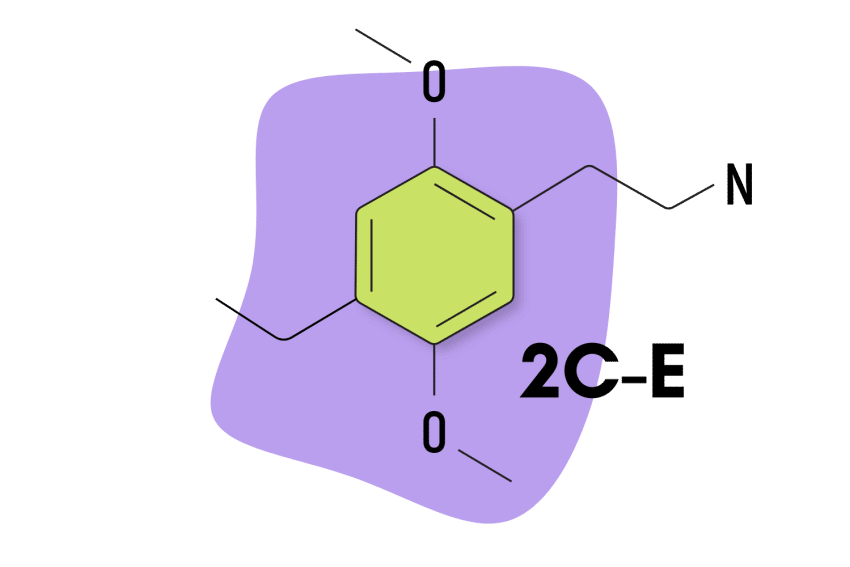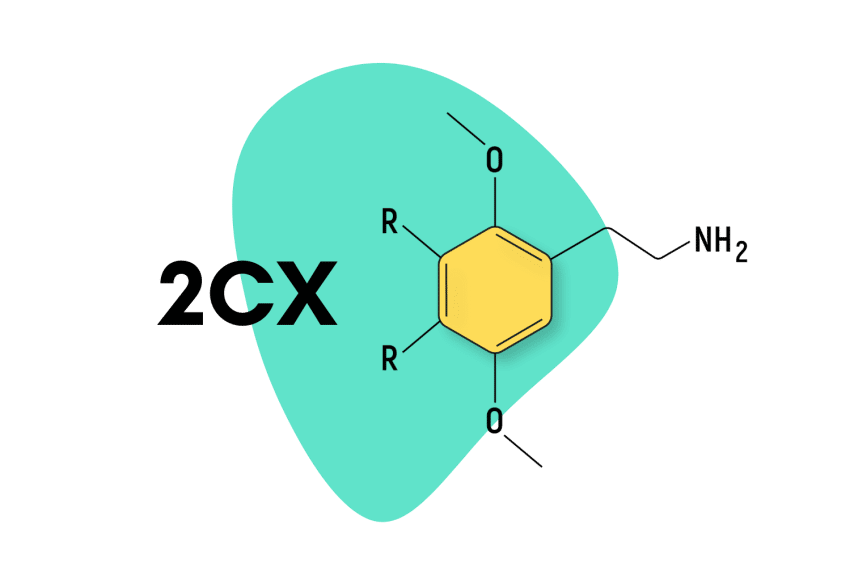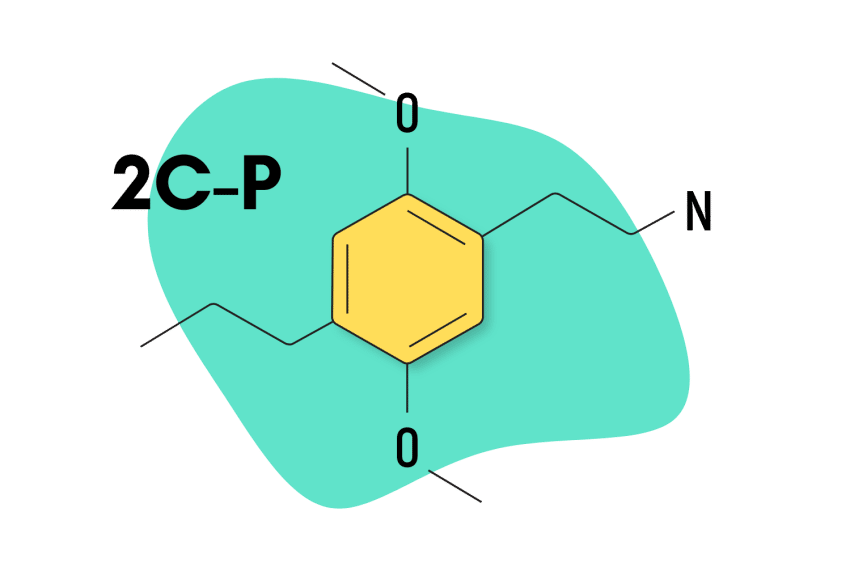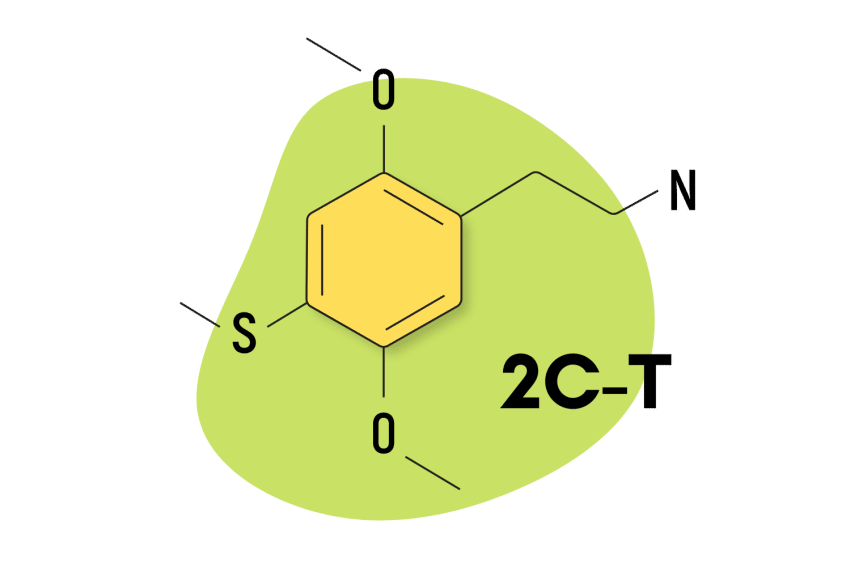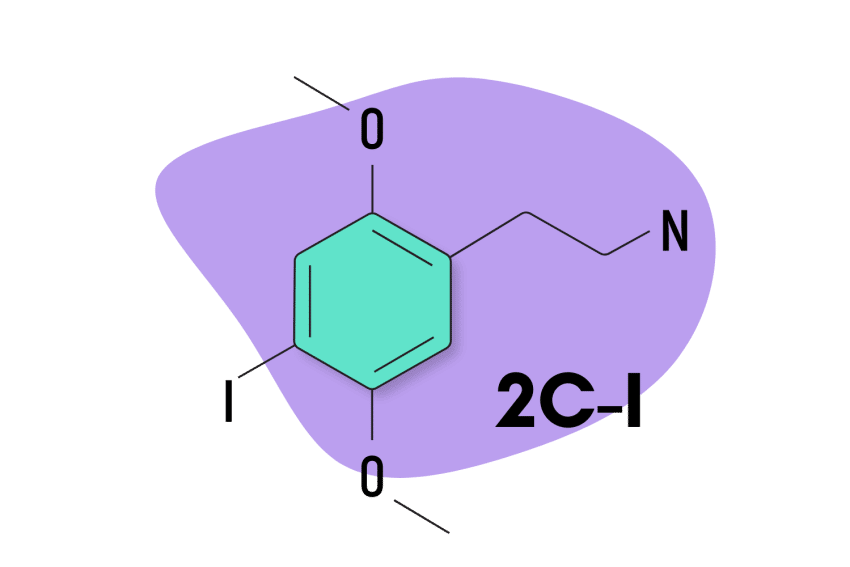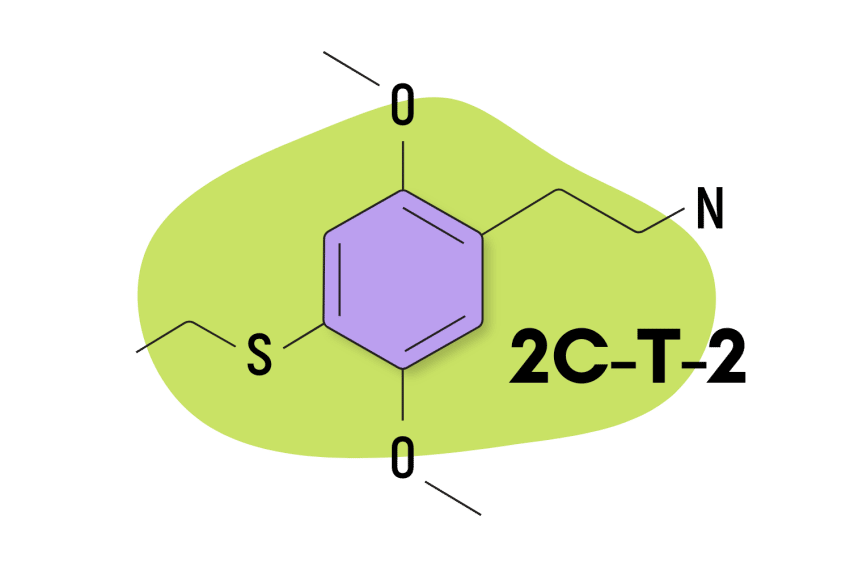2C-D: The Intersect Between DOM & 2C-B
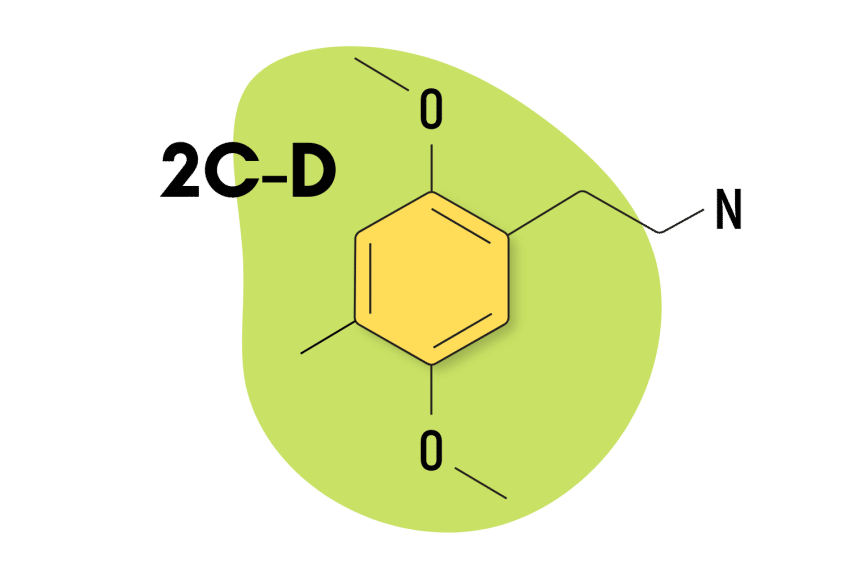
2C-D is one of the mildest members of the 2C-X family of substances. But that doesn’t mean it isn’t psychedelic.
What makes this compound unique is its ability to induce strong visuals and enhance tactile sensations without affecting headspace.
This substance is rarely used today, even in the research chemical community, but some users report it’s a good nootropic at microdose or threshold doses.
In this guide, we’ll cover everything you need to know about 2C-D — including information on dosage, safety, qualitative experience, and more.
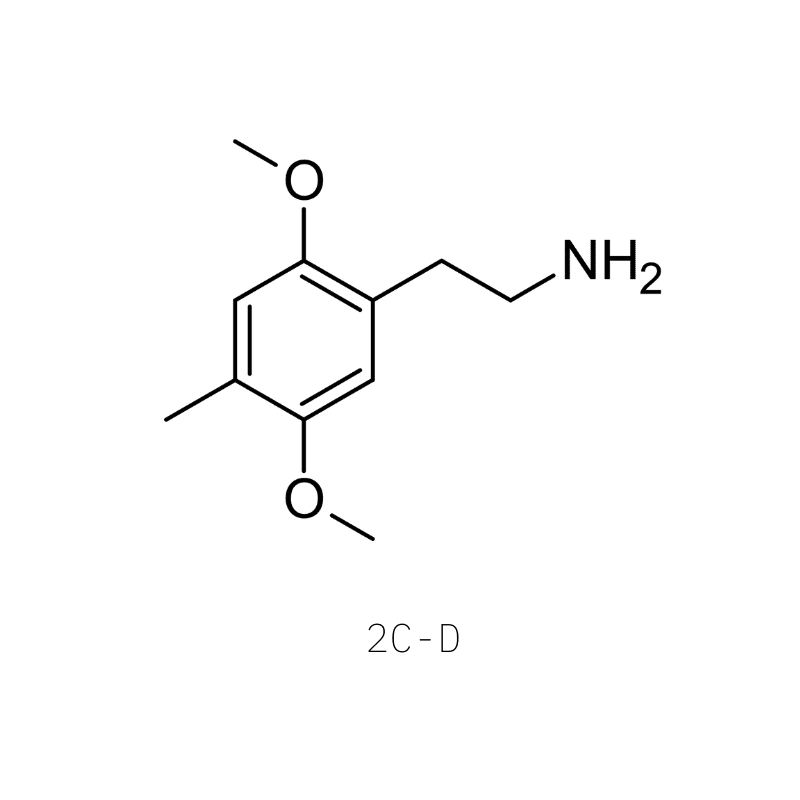
What is 2C-D?
2C-D (also referred to as 2C-M or LE-25) stands for 2,5-dimethoxy-4-methylphenethylamine. It’s a member of the 2C-X family of compounds which includes such members as 2C-B, 2C-C, 2C-E, 2C-I, 2C-P, 2C-T-2, and 2C-T-7, and many others.
This 2C member is differentiated by its mild effect profile and short duration of effects. It’s among the weakest 2C drugs available. It’s also one of the most expensive. This combination is likely the reason why this psychedelic has remained in obscurity despite having been around since the early 1970s.
Alexander Shulgin, the man who discovered 2C-D, referred to this substance as “pharmacological tofu”. Tofu is used to enhance the other flavors in a dish without overpowering it with its own flavor. This analogy implies that 2C-D could be used to potentiate or enhance the effects of other psychedelics without overpowering or shifting the direction of the experience.
2C-D is an analog of another psychedelic research chemical called DOM (2,5-dimethoxy-4-methylamphetamine). DOM is an amphetamine psychedelic, while 2C-D is a phenethylamine psychedelic. The molecular difference between these substances is just two carbon atoms.
2C-D is effectively the middle-ground between the DOx family and the 2C-X family of drugs.
2C-D: Specs & Technical Details
| Active Ingredient | 2,5-Dimethoxy-4-methylphenethylamine |
| Level of Risk | Low |
| Most Common Side-Effects | Increased body temperature & dry mouth |
| Duration of Effects | 3–5 hours |
| Legality | Illegal in most parts of the world |
Guidelines for the Responsible Use of 2C-D
- 🐍 I understand why psychedelics should be treated with respect
- ⚖️ I’m familiar with the laws surrounding psychedelics in my country & state
- 🍄 I’m familiar and confident in the dose I’m taking (dose range for 2C-D is 25-50 mg)
- 🧪 I’ve tested a sample of the substance I’m using with a drug testing kit
- 💊 I’m not mixing any medications or other substances with 2C-D
- 🏔 I’m in a safe & comfortable environment with people I trust
- 🐺 One of the members of my group is responsible and sober (AKA a trip sitter)
- 📆 I have nothing important scheduled for after the trip
- 🧠 I’m in a sound & healthy state of mind
- 🌶 I’m aware of the increased risk of heatstroke & dehydration with this compound
- 📚 I’m familiar with the four pillars of responsible psychedelic use — set, setting, sitter, & substance.
- ⏳ Know the timeline — the effects of 2C-D can last between 3 and 5 hours
- 🙅♀️ Know when to avoid stimulants — don’t take 2C-D if you have underlying heart, neurological, or psychiatric disorders
What’s The Dose of 2C-D?
2C-D is one of the least potent members of the 2C-X family. The standard psychoactive dose range for this compound is 25–50 mg. Shulgin’s report includes a dose up to 150 mg, in which he stated the compound was remarkably psychedelic, comparable to 2C-B. He noted that any more than that would be “too much”.
Compared to other 2C substances, 2C-D requires about twice the dose of 2C-B, 2C-C, and 2C-E, and 4–6 times the dose of the most powerful member of the class, 2C-P.
Even in high doses, 2C-D doesn’t appear to cause inebriation. It changes visual perception and can affect mood, but headspace remains close to sober.
Some users report microdosing the compound acts as a nootropic — enhancing visual acuity, mental clarity, and memory. The microdose for this compound is around 1 or 2 mg.
Dosage Breakdown for 2C-D
- Microdose — 1–2 mg
- Threshold Dose — 3 mg
- Standard Psychoactive Dose — 25–50 mg
- Heavy Dose — 50–100 mg
What Does 2C-D Feel Like?
The effects of 2C-D are almost always mild. Its effects are best described as being lucid and insightful.
The 2C-D experience is highly visual, with little impact on headspace. You feel sober mentally despite the clear hallucinogenic activity. This is likely why Shulgin, and others, believe this substance is best used in combination with other psychoactive substances. It doesn’t add strong effects in terms of mental clarity or mood but adds a nice layer of visual distortions to the mix.
The visuals on 2C-D are distinct from other members of the 2C family. Visions are geometric like DMT but with entirely different pattern formations. It’s common for trip reports to include features like tracers, after images, color changes, and glowing objects.
These visual hallucinations are more similar to DOM or NBOMe substances than other 2C drugs, LSD, or psilocybin. It’s more geometric than most psychedelics, but in a different way than DMT.
The physical sensations are also mild, but some users report 2C-D enhances tactile sensation and makes it feel like there’s a “warm blanket wrapped around the body”. The enhanced tactile experience could make this substance useful for increasing arousal and sexual intimacy, yet this is something that’s notably lacking from the experience.
Alexander Shulgin mentioned this point in his report about the substance, stating that:
“Somehow the intimacy and the erotic never quite knit, and I feel that I am always waiting for the experience to come home”.
The key features of 2C-D include:
- Changes in visual & auditory perception
- Alterations in the perception of color
- Seeing after images
- Tracers in the vision
- Geometric patterns
- Enhanced tactile perception
How Long Does 2C-D Last?
The effects of 2C-D kick in quickly, within about 30 minutes, and reach peak effects by the 1-hour mark.
The entire 2C-D experience is usually over within about 4 hours, with some reports suggesting 5 or 6 hours, including afterglow.
The short duration of effects is surprising because both 2C-X and DOx substances (both closely related to 2C-D) are both notoriously long-lasting.
People who have snorted 2C-D (not recommended) report the experience only lasts about an hour.
How Strong is 2C-D Compared To Other Psychedelics?
2C-D is milder than most psychedelics.
Even at the standard psychoactive dose, 2C-D is comparable to low doses of LSD, magic mushrooms, DMT, or other 2C-X substances.
The experience is distinct from other 2C-X substances in terms of the qualitative experience of the visual hallucinations, as well as the body load that often comes with 2C drugs. With that said, 2C-D can enhance tactile sensations. This is usually more of a positive experience than a negative one, as is common with other 2C-X members like 2C-P, 2C-I, or 2C-E.
Is 2C-D Safe?
There’s virtually no information available to quantify the safety of this psychedelic. It’s never been studied on humans, so the only “evidence” we have to assess its safety comes from anecdotal reports from people who have used it.
That said, there’s no evidence thus far to suggest 2C-D carries any more risk than the other 2C-X substances. The most popular 2C member is 2C-B, which has been used by millions of people around the world at this point and has not been directly or solely implicated in any overdose-related deaths.
One related compound, 2C-P, has been associated with one death — but it’s unclear what role this substance played in this case. The victim also had MDMA and ketamine in her system and took what’s only been described as a “high dose” of 2C-P. This particular 2C-X is the strongest member of the class. It’s more than 5 times more potent than 2C-D.
Testing 2C-D
One of the most high-yield steps you can take to reduce your chances of harm while using any substance is to test a small sample of it first. You’d be surprised how many people ran a simple test on their substance only to find it wasn’t what they thought it was.
Even reputable vendors that you’ve ordered from in the past can miss something and either mislabel a baggie or forget to test a sample themselves.
Testing 2C-D is simple and requires just a few tiny crystals (about the size of a grain of sand) in order to run the test. Reagent test kits cost less than $20 each and last a very long time. You only need to use one drop of solution per test — a low price to pay for something that could save your life one day.
Learn more: How to test your substances using drug reagent kits.
What to look for when testing 2C-D:
- Marquis — Should turn yellow-brown
- Mecke — Should turn greenish-brown
- Mandelin — Should turn green
- Froehde — Should turn yellow first, then black
- Liebermann — Should turn black, then yellow
- Ehrlich — No color change
If any of these tests produce different results, your sample could contain other compounds on top of 2C-D or contain no 2C-D whatsoever.
Side Effects of 2C-D
2C-D doesn’t have a lot of side effects due to its mild nature. However, as with any pharmacologically active compounds, there are a few side effects to watch out for:
- Increased temperature
- Dry mouth
- Anxiety or stimulation
- Tingling sensation in the limbs
- Insomnia
Is 2C-D Legal?
2C-D is illegal in most parts of the world.
In the United States, it’s listed by name as a Schedule I restricted drug.
In Canada, 2C-D isn’t named directly but is considered a Schedule III substance by proxy as it’s an analog of DOM.
In the United Kingdom, 2C-D is listed as a Class A drug due to a blanket ban in effect for all 2C-X drugs.
Australia shares a similar ban on all psychoactive phenethylamines, which includes the 2C-X family.
Related: List of legal psychoactive substances around the world.

Final Thoughts: What’s The Future of 2C-D?
2C-D is an obscure psychedelic. Even in the psychonaut community, this compound hasn’t seen a lot of use. This is likely due to its high cost, short duration of effects, and low potency relative to other psychedelic research chemicals.
This substance is currently illegal in all parts of the world — with the exception of countries that have moved to decriminalize all drugs. Its unlikely laws will be loosened around 2C-D specifically, especially when we know as little as we do about the long-term safety of this compound or its potential for abuse (which appears to be quite low based on the anecdotal reports available).

